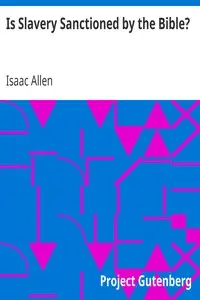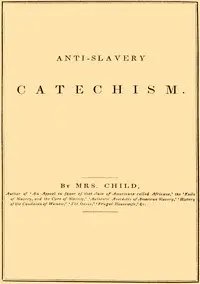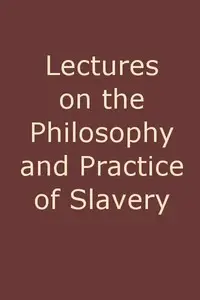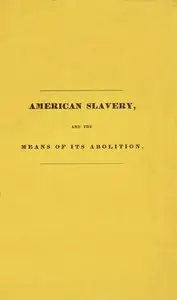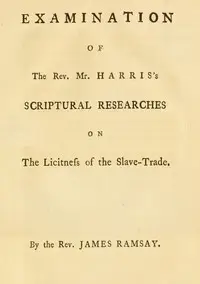"Slavery Ordained of God" by F. A. Ross is a collection of writings from the 1800s that tries to defend slavery using religious ideas. The book includes speeches and letters where Ross tries to show that slavery, in some situations, is what God wanted. Ross argues that slavery can be good for everyone involved and that it should not be seen as a sin. He calls for people from the North and South to understand the Bible's teachings about slavery in order to bring the country together when there were big disagreements. The book begins with Ross explaining that he wants to talk about slavery as a Christian. In a speech to a church group, he questions the North's belief that slavery is always wrong. He wants people to rethink how masters and slaves relate to each other, saying that it can be helpful and morally acceptable. Ross thinks Christians from both sides of the country should try to understand each other better about slavery and find religious reasons for peace during a troubled time.

Slavery Ordained of God
By F. A. (Frederick Augustus) Ross
Discover how one man used religion to argue that owning people was not a sin, but a holy practice.
Genres
Released
2005-10-01
Formats
epub
epub (images)
epub3 (images)
mobi
mobi (images)
txt
Free Download
Summary
About the AuthorFrederick Augustus Ross was a Presbyterian New School clergyman in both Kingsport, Tennessee, and Huntsville, Alabama, slave owner, publisher and pro-slavery author of the book Slavery As Ordained of God (1857).
Frederick Augustus Ross was a Presbyterian New School clergyman in both Kingsport, Tennessee, and Huntsville, Alabama, slave owner, publisher and pro-slavery author of the book Slavery As Ordained of God (1857).
Total Reviews
10.0k
Total reviews from Goodreads may change


